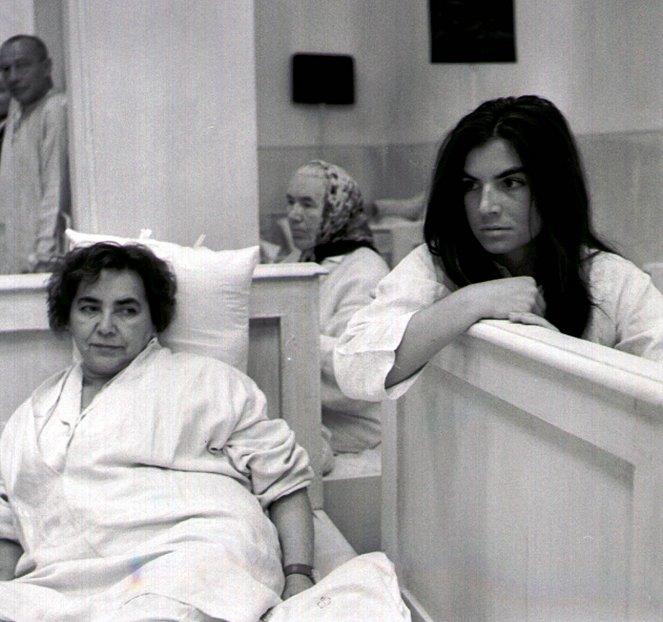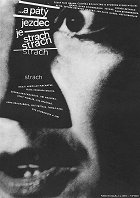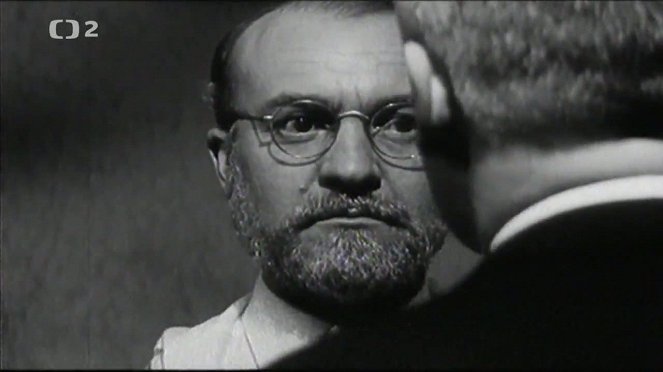Directed by:
Zbyněk BrynychCinematography:
Jan KališComposer:
Jiří SternwaldCast:
Miroslav Macháček, Olga Scheinpflugová, Jiří Adamíra, Zdenka Procházková, Josef Vinklář, Ilja Prachař, Jana Prachařová, Jiří Vršťala, Tomáš Hádl (more)Plots(1)
It is the year 1941 in Prague. The city has been invaded by the German occupying forces. A Jewish doctor, senior lecturer Armin Braun, is not allowed to run his medical practice and works as a warehouseman in a synagogue in which the property confiscated in Jewish apartments are stored. Every night, Braun returns to his scant flat in the garret of a block of flats. His neighbours avoid him from fear. One night, however, Braun is asked for help by his neighbour Šidlák, who has hidden a severely wounded man in his apartment - a man called Pánek, a member of the anti-Fascist resistance movement. Braun first refuses to treat the wounded man, but eventually agrees to operate on him under primitive conditions and removes the bullet from his body. But the patient needs morphine. To get it, Braun meets his former colleague Wiener, a doctor working in a mental home, in a bar and is appalled that some people are trying to enjoy themselves even in the time of a mortal danger. Eventually, Braun succeeds in getting the medicine from the hospital. That, however, does not put his suffering to an end. The Gestapo shows up, beating on the gate of the house. Braun carries Pánek into his apartment. The neighbours, the informer Fanta among them, sense the presence of the hunted man in the house, but the Gestapo does not find anybody. The next day, Šidlák removes the resistance fighter to a safe place. But Fanta has reported on Braun in the meantime, and the Gestapo returns. The desperate doctor confesses that he has treated an unknown man, and then swallows a vial of poison. The Gestapo then teaches the neighbours a lesson, forcing them to pass by the corpse of the brave doctor lying on the staircase. (official distributor synopsis)
(more)Videos (2)
Reviews (1)
"Daddy, who is a hero?" - "A person who died in vain. Unlike others who live in vain." When I recently reviewed Brynych's Transport from Paradise, I wrote that it is probably his best film. But I still hadn't seen this film, which I consider to be the real peak of his work from that moment on. This film has several common elements with Transport from Paradise, and you can see that it was created by one creator in one creative period. Black-and-white images, interesting camera work, expressively resonating scenes, and the tragedy of people in a hopeless situation. However, this film better utilizes its space, and there are no long empty shots. Even the Prague streets without people have meaning and evoke a feeling of claustrophobia and a sense of real threat. Brynych's protagonist, excellently played by Miroslav Macháček, is an unhappy man in the wrong place. A Jew in Protectorate Prague who knows well where everything is heading and, thanks to his intelligence and scientific analytical thinking, has no illusions about his fate. He tries to distract himself from the gloomy reality by carefully performing his work and taking care of confiscated watches at the relevant occupation office. One day, he is presented with an opportunity to help an injured resistance fighter and in a way, take revenge on the regime and show his humanity one last time. The film is excellently cast and there are very few similar films where a lot of famous names from Czech cinema appear in episodic roles on such a small stage. In the confined spaces of a Prague tenement occupied by the Gestapo, the human characters are also very well exposed, once again overturning the instinct of self-preservation and fear in all possible forms. I only have one remark - life has taught me that people under pressure often behave completely differently than in times of ease, and you are often disappointed by the one you least expect. Here, the weak link is clear from the beginning, and the director, or rather the screenwriter, does not hide any surprises for us. Overall impression: 85%.
()
Gallery (19)
Photo © Bontonfilm


